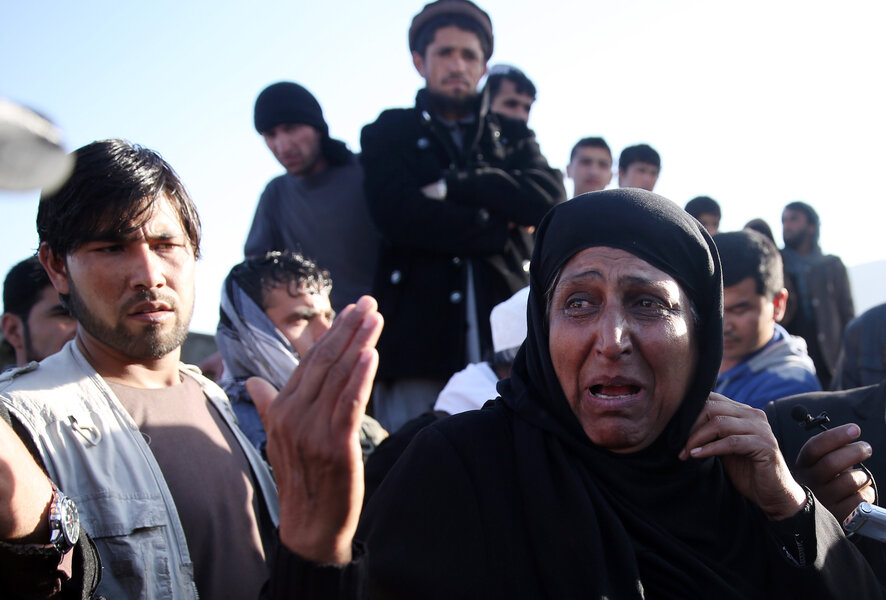Afghan Taliban refuse peace talks with government. Why?
Loading...
| KABUL, Afghanistan
The Taliban said Saturday they will not participate in a peace process with the Afghan government until foreign forces stop attacking their positions and leave the country.
A statement emailed to The Associated Press by spokesman Zabihullah Mujahid said the insurgents "reject" peace talks and that reports of their participation were "rumors."
Face-to-face talks were expected to take place in Pakistan in early March, but Afghan officials said in recent days that they have been postponed for at least a week. Senior government officials had characterized the meeting as the first real step in a peace process aimed at ending the war, now in its 15th year.
Javid Faisal, a spokesman for Afghan Chief Executive Abdullah Abdullah, said the government "has no problem holding the first round of direct peace talks."
The Taliban have meanwhile accused the United States of boosting troop numbers and carrying out airstrikes and night raids on residential compounds. They also accuse Afghan forces of stepping up operations.
Mujahid said the leader of the Afghan Taliban, Mullah Akhtar Mansoor, had not given any order to take part in talks and that the "leadership council of the Islamic Emirate" had not discussed the matter.
The talks were decided on by delegates of four countries — Afghanistan, Pakistan, China and the United States — who met in Kabul last month. No date was set, and no names of participants were announced.
The last attempt at direct talks broke down last summer after just one round when Kabul announced the death of longtime Taliban leader Mullah Mohammad Omar.







